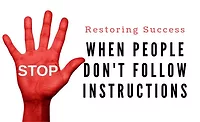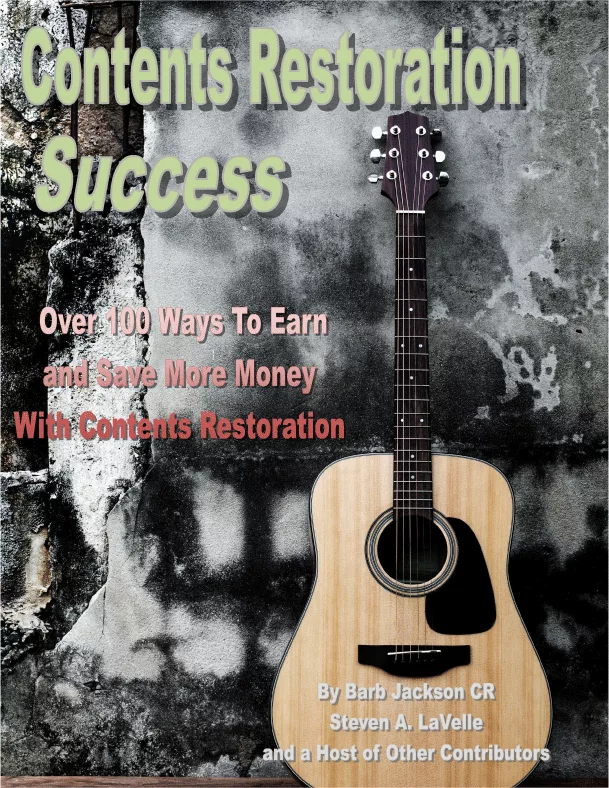Restoring Success: “I Need Good People”
A common theme in our industry is the need for what we call “good” people
 A common theme in our industry is the need for what we call “good” people. As service providers, we know that all the technology and procedures can’t substitute the need and desire for not just good people, but great people. The challenge of talent acquisition is not unique to the restoration industry. Many industries are challenged by the need for technical skills and tradesman. In our region, our economic development organizations are working together to address the problem. Locally, the Greater Reading Economic Partnership is spearheading a program called “Careers in 2 Years,” which focuses on technical careers. These types of initiatives are happening all over the country where businesses, educational institutions and economic development organizations are all working together to match job seekers and the needs of businesses.
A common theme in our industry is the need for what we call “good” people. As service providers, we know that all the technology and procedures can’t substitute the need and desire for not just good people, but great people. The challenge of talent acquisition is not unique to the restoration industry. Many industries are challenged by the need for technical skills and tradesman. In our region, our economic development organizations are working together to address the problem. Locally, the Greater Reading Economic Partnership is spearheading a program called “Careers in 2 Years,” which focuses on technical careers. These types of initiatives are happening all over the country where businesses, educational institutions and economic development organizations are all working together to match job seekers and the needs of businesses.
The restoration industry is unique because typically nobody grows up and says, “I want to be a restorer.” It is unique because you can enter this industry, learn the technical trades and receive training and endless opportunity. Yes, there is endless opportunity. Typically, you can become a manager, an owner, anything that you put your mind to without a traditional college degree. However, a good work ethic, a good attitude and the willingness to learn are all required. I find it an asset to the industry that many people enter with other career and work experiences that can bring value to their career in restoration.
Where do you find these people, these great people? One of our instructors, Ron Valega, says, “Hire for attitude, train for skill.” Although it is not hard to convince you on the value of this philosophy, I encourage you to make this a company value. We have agreed as a company, as a team, that we would all rather work a little harder and put in extra hours than hire the “wrong” people. Once a new person is hired that has a great attitude, as a company, everyone unites in training and supporting the new team member.
I believe that there are three critical components to the process of finding and then developing talent: Recruitment, interviewing/screening and retention and development. The first step to finding your next “great person” is to have candidates apply to join your team. The following is a list of things to consider:
1. Avoid Frustration:
- Generational: Avoid getting frustrated by the generational changes. This happens in every generation. Become educated about the differences and look to them as an advantage.
- Get involved in local initiatives that help job seekers and help businesses develop the local labor force.
- Staying positive is key. Let the world know how much opportunity lies within this industry - what it means to be a professional restorer and the opportunities that lie within.
2. Involve your entire team in your initiative: “Recruitment”
- Make sure that everyone knows “We are hiring!” Some of your best future employees will come from referrals from your current team.
- Consider a referral program. Your team members can receive a prize or bonus for referrals that result in hires.
3. Job Fair: Have a job fair at your facility with light snacks and your existing team welcoming and interviewing candidates. Advertise the job fair on social media, hang flyers, job boards, spread the word. It is an inexpensive way to bring in a fresh pool of candidates and your entire team can have fun executing it.
4. Reach out to the local technical and vocational schools and connect with recent graduates.
5. Evaluate employment websites. In addition to free job posting sites, there are a variety of job matching sites that require a fee, and there are many state or local government sites that may be a good fit.
6. Social Media and Digital: Announcing publicly that you are hiring is a positive. It shows you are a part of the local economy that you are growing, and may help you find candidates through your existing networks.
7. Be Creative: I encourage you to be creative in your promotions. Look beyond the requirements and contact information. Sell the career you are offering.
Finding the right people with the right attitude is important and can be a challenge. Once the recruitment process is working for you, develop a sound interview process. From the point of hiring, consider retention and development and make sure that every person who joins your team understands the excitement, the gratification and the opportunity that our industry offers.
Looking for a reprint of this article?
From high-res PDFs to custom plaques, order your copy today!







